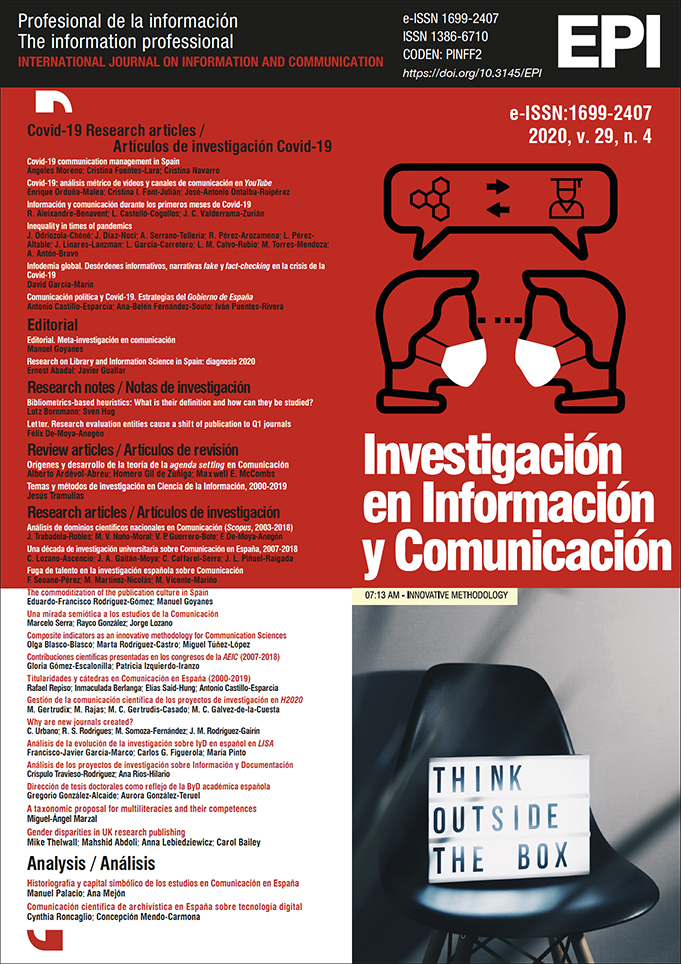Global infodemic: Information disorders, false narratives, and fact checking during the Covid-19 crisis
DOI:
https://doi.org/10.3145/epi.2020.jul.11Keywords:
Pandemics, Infodemics, Covid-19, Coronavirus, Disinformation, Information disorders, Post-truth, Verification, Fact checking, Fake news, Digital platforms, Misleading content, Health information, WhatsAppAbstract
Covid-19 has triggered not only a pandemic that endangers our social, economic, and health systems but also an infodemic resulting from the prolific spread of fake news, hoaxes, and misleading content. From a statistical-descriptive perspective and using content analysis, this research analyzes the information disorders, media language, "‹"‹and narratives that carry the disinformation generated about Covid-19 at an international level. The analysis focuses on determining its frequency of occurrence, based on the time it takes to be verified and establishing the relationship between the spread of the virus and the prevalence of disinformation on different continents. A sample of 582 fake news items included in the International Fact-Checking Network (IFCN) database on the novel coronavirus was analyzed. This information was divided into a general sample made up of 511 pieces of disinformation and a specific one on fake news spread through WhatsApp (n=71). The results partially confirm recent studies that reported a greater prevalence of information that reconfigures legitimate content and takes longer to be verified than fully fabricated content. Disinformation in textual form predominates over the production of images and audios. Video content required longer verification times in comparison with the other media formats. Disinformation about Covid-19 includes narratives with a dynamic and changing character as the pandemic expands. Likewise, a parallelism between the geographical evolution of the pandemic and the spread of the infodemic is detected, as well as specific disinformation patterns on WhatsApp, where more audio-based disinformation and a higher percentage of fabricated content is shared, sometimes for criminal purposes.
Downloads
Downloads
Published
How to Cite
Issue
Section
License
Copyright (c) 2020 El Profesional de la Información

This work is licensed under a Creative Commons Attribution 4.0 International License.
Dissemination conditions of the articles once they are published
Authors can freely disseminate their articles on websites, social networks and repositories
However, the following conditions must be respected:
- Only the editorial version should be made public. Please do not publish preprints, postprints or proofs.
- Along with this copy, a specific mention of the publication in which the text has appeared must be included, also adding a clickable link to the URL: http://www.profesionaldelainformacion.com
- Only the final editorial version should be made public. Please do not publish preprints, postprints or proofs.
- Along with that copy, a specific mention of the publication in which the text has appeared must be included, also adding a clickable link to the URL: http://revista.profesionaldelainformacion.com
Profesional de la información journal offers the articles in open access with a Creative Commons BY license.




